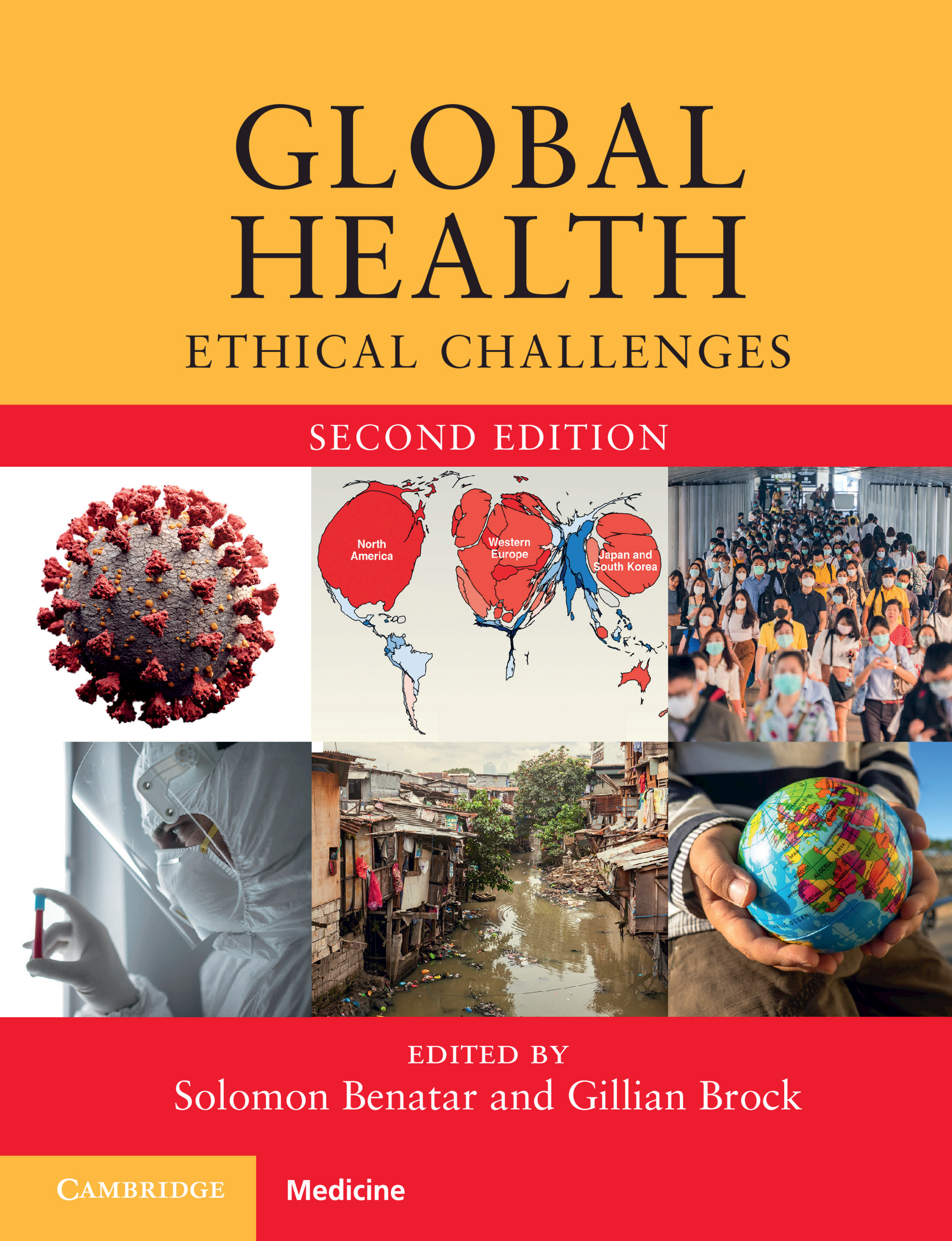Book contents
- Global Health
- Global Health
- Copyright page
- Contents
- Contributors
- Introduction
- Section 1 Global Health: Definitions and Descriptions
- Section 2 Global Health Ethics, Responsibilities, and Justice: Some Central Issues
- Section 3 Analyzing Some Reasons for Poor Health and Responsibilities to Address Them
- Section 4 Environmental/Ecological Considerations and Planetary Health
- Section 5 The Importance of Including Cross-Cultural Perspectives and the Need for Dialogue
- Section 6 Shaping the Future
- Chapter 29 Global Health Research
- Chapter 30 Justice and Research in Developing Countries
- Chapter 31 The Health Impact Fund
- Chapter 32 Evaluating Global Health Impact and Increasing Access to Essential Medicines
- Chapter 33 Philanthrocapitalism and Global Health
- Chapter 34 Big Data and Artificial Intelligence for Global Health
- Chapter 35 Global Health Governance for Developing Sustainability
- Chapter 36 Teaching Global Health Ethics
- Chapter 37 Teaching Global Health Ethics
- Chapter 38 Toward a New Common Sense
- Index
- References
Chapter 38 - Toward a New Common Sense
The Need for New Paradigms of Global Health Beyond the COVID-19 Emergency
from Section 6 - Shaping the Future
Published online by Cambridge University Press: 04 February 2021
- Global Health
- Global Health
- Copyright page
- Contents
- Contributors
- Introduction
- Section 1 Global Health: Definitions and Descriptions
- Section 2 Global Health Ethics, Responsibilities, and Justice: Some Central Issues
- Section 3 Analyzing Some Reasons for Poor Health and Responsibilities to Address Them
- Section 4 Environmental/Ecological Considerations and Planetary Health
- Section 5 The Importance of Including Cross-Cultural Perspectives and the Need for Dialogue
- Section 6 Shaping the Future
- Chapter 29 Global Health Research
- Chapter 30 Justice and Research in Developing Countries
- Chapter 31 The Health Impact Fund
- Chapter 32 Evaluating Global Health Impact and Increasing Access to Essential Medicines
- Chapter 33 Philanthrocapitalism and Global Health
- Chapter 34 Big Data and Artificial Intelligence for Global Health
- Chapter 35 Global Health Governance for Developing Sustainability
- Chapter 36 Teaching Global Health Ethics
- Chapter 37 Teaching Global Health Ethics
- Chapter 38 Toward a New Common Sense
- Index
- References
Summary
In Chapter 18, we outlined a reading of the present global conjuncture that we characterized as one of organic crisis. The term was meant to invoke a paradoxical situation, one pregnant with possibilities for alternative ways in which global health might be improved, yet nevertheless a situation in which new alternatives have yet to emerge or indeed to be born.
- Type
- Chapter
- Information
- Global HealthEthical Challenges, pp. 470 - 477Publisher: Cambridge University PressPrint publication year: 2021
References
- 2
- Cited by

